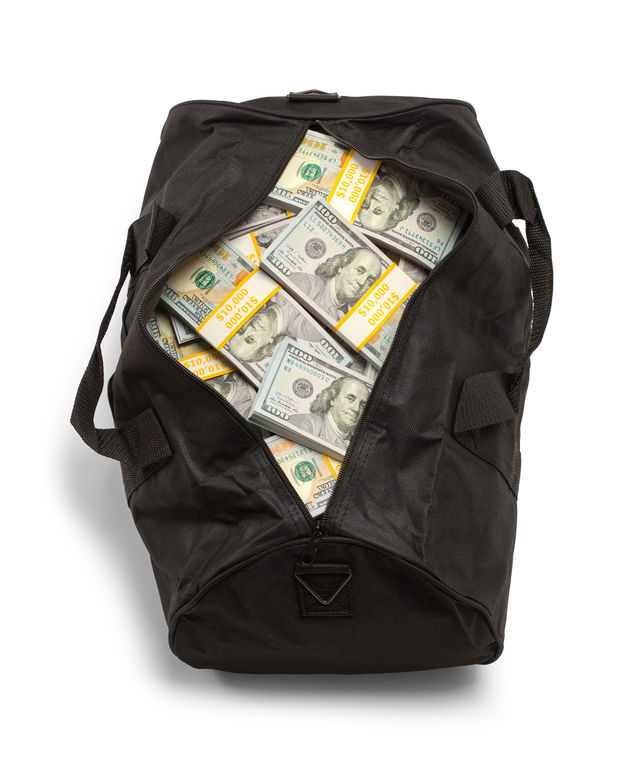A bill introduced in the Alaska House of Representatives proposes sweeping changes to the state’s currently unlimited campaign contribution system.
Sponsored by Democrat-backed Rep. Calvin Schrage, House Bill 16 would establish contribution caps across the board and embed long-term campaign finance mechanisms into law. Alaska is one of the few states where campaign contributions are essentially limitless after a previous too-strict cap was struck down by the Ninth Circuit Court of Appeals in 2021 in the Thompson v. Hebdon ruling.
The bill summary reads: “An Act requiring a group supporting or opposing a candidate or ballot proposition in a state or local election to maintain an address in the state; amending campaign contribution limits for state and local office; directing the Alaska Public Offices Commission to adjust campaign contribution limits for state and local office once each decade beginning in 2031; relating to campaign contribution reporting requirements; relating to administrative complaints filed with the Alaska Public Offices Commission; relating to state election expenditures and contributions made by a foreign-influenced corporation or foreign national; and providing for an effective date.”
Key Provisions of HB 16:
- Individuals would be limited to donating $2,000 per election cycle to a candidate or non-group entity. Donations to campaign groups would be capped at $5,000 annually.
- Groups not classified as political parties could contribute up to $4,000 per election cycle to a candidate and $5,000 annually to other groups or entities.
- Non-group entities would also face a $4,000 cap per election cycle to candidates and a $5,000 annual cap to groups and parties.
- Joint campaigns for governor and lieutenant governor would see individual contributions capped at $4,000 per election cycle, and group contributions at $8,000.
Importantly, HB 16 maintains that entities making independent expenditures — such as political action committees operating separately from campaigns — would remain unrestricted, in line with the Supreme Court’s decision in Citizens United v. FEC.
Alaska’s politics are heavily influenced by these independent expenditure groups, most of them funded by Outside dollars, and many of them with ties to dark money from the Arabella Advisors network of liberal billionaires.
To ensure limits stay current with economic conditions, the bill directs the Alaska Public Offices Commission to review and adjust the caps every 10 years, beginning in 2031, based on inflation rates. It also stabilizes campaign finance reporting by prohibiting APOC from altering reporting formats or methods mid-cycle, giving campaigns consistency throughout an election.
Additionally, the bill clarifies that an “election cycle” begins when a candidate is eligible to accept campaign funds and ends when the candidate files their final financial report.
On Friday, Republicans proposed several amendments to HB 16, but none were adopted by the Democrat-controlled House. The bill is scheduled for its third reading and a final vote on Monday, where it is expected to pass with solid Democratic support and a split among Republicans.
Separate petition effort seeks different limits
Meanwhile, a separate movement is underway through a citizens’ initiative petition to place limits specifically on individual campaign contributions as well, and the petition may be irrelevant if HB 16 goes into law in its current form.
Citizens Against Money in Politics, a Juneau-based group headed by Democat activist Bruce Botelho, has attained the more than 26,000 signatures needed to be on the next general election ballot in 2026. Anchorage Rep. Schrage, sponsor of HB 16, is also part of this group’s leadership.
The group is supported by outside “dark money” entities associate with the Arabella Advisors. It proposes capping individual contributions to candidates at $500 per year.
People would be limited to donating no more than $2,000 to a non-party group entity, or $5,000 a year to a party or other group, $1,000 a year to a candidate. Groups may not contribute more than $8,000 each election cycle ($2,000 per year). Read the specifics here.
The top three contributors to the “Citizens Against Money in Politics” petition are the usual suspects, who made themselves and other entities like them exempt from the limits. They are: New Venture Fund (Arabella Advisors), AFL-CIO, and NEA-Alaska.
The petition is being driven by outside and union interests trying to restrict grassroots support in favor of well-funded independent expenditure groups that would remain largely unrestricted. It will appear on the primary ballot in 2026.
If enough valid signatures are gathered, the initiative could appear on the ballot in a future election, giving voters a direct say on imposing stricter contribution caps apart from legislative efforts like HB 16.
